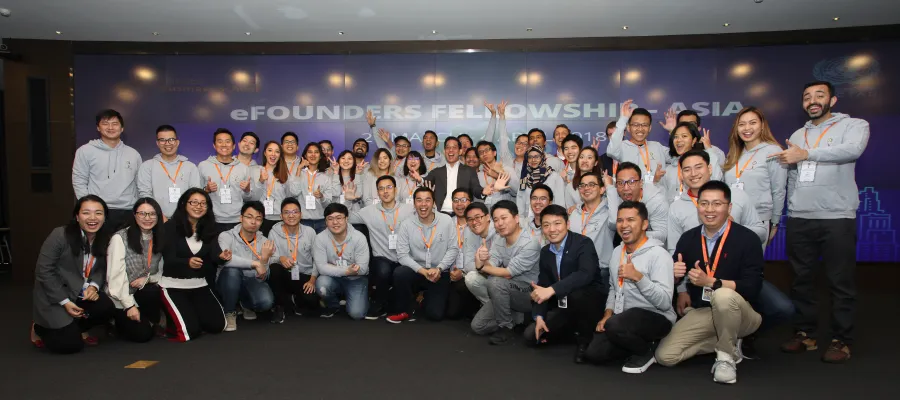
UNCTAD, Alibaba Business School kick off eFounders Initiative for Asian entrepreneurs
The United Nations Conference on Trade and Development (UNCTAD) and Alibaba Business School recently enrolled the first class of 37 Asian entrepreneurs for the eFounders Initiative at an opening ceremony held on the Alibaba campus in Hangzhou, China.
The 11-day course is part of a commitment by Jack Ma, Alibaba Group’s founder and executive chairman and UNCTAD Special Adviser, to empower 1,000 entrepreneurs from developing countries in five years.
The launch of the first programme for Asian entrepreneurs comes after the success of the inaugural class for 24 African participants last November.
Following a rigorous selection process, the final candidates from Cambodia, Indonesia, Malaysia, Pakistan, the Philippines, Thailand and Vietnam will embark on an 11-day intensive course providing first-hand exposure to e-commerce innovations from China and around the world and become eFounders Fellows.
Eventually these young entrepreneurs will become catalysts in their home country that will spur the digital transformation of their economies, according to the programme organisers.
Smart partnerships
“We want to reach out to youth and include them in the work we do for inclusive and sustainable economic growth,” Arlette Verploegh, coordinator for the eFounders Initiative at UNCTAD, said. “The initiative is about bridging the digital divide for young entrepreneurs and unlock their potential. It is part of a set of smart partnerships UNCTAD is creating to reach the sustainable development goals.”
All participants are founders of their respective start-up companies, ranging from e-commerce, big data, logistics, fintech, payment and tourism.
“We are excited to extend this fellowship to entrepreneurs from Asia for the very first time as part of our commitment to empower digital champions and communities around the world,” said Brian A. Wong, vice president of Alibaba Group, who heads the Global Initiatives programme.
“Our goal is to inspire entrepreneurs to serve as pioneers for building a more inclusive development model that is not just good for their business, but also good for society by creating platforms that all can participate in and benefit from.”
E-commerce ecosystems
The participants of the eFounders Initiative will learn first-hand the transformative impact e-commerce and technology have on society in China and participate in lectures and discussions with local practitioners and executives to identify the lessons that can be applied to their own markets. Topics covered will include e-commerce, payment, logistics, big data and tourism from Alibaba Group and other successful companies in the e-commerce value chain, with sessions touching on digital finance, smart logistics and rural e-commerce development, among others.
Upon graduation, participants will officially become Fellows of the eFounders Initiative and make formal commitments on how they will apply the learning from this programme. As part of the wider eFounders Initiative community of promising young entrepreneurs around the world, UNCTAD and Alibaba Group will also continue to advise on and provide support for the creation of e-commerce ecosystems jointly with other stakeholders.



















 Advertise
Advertise






